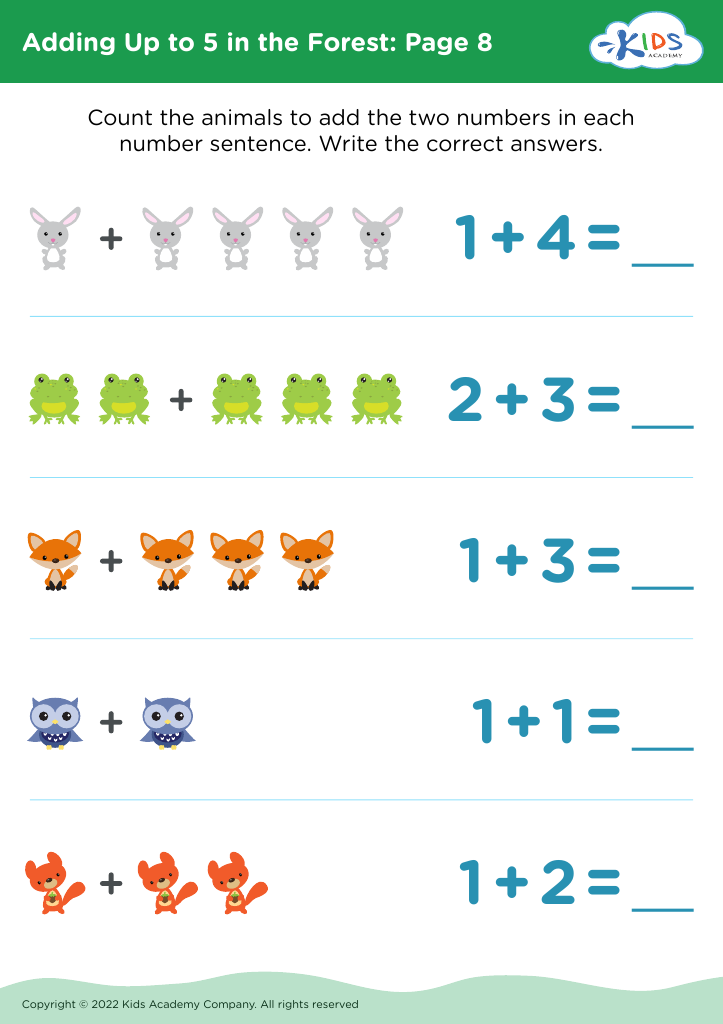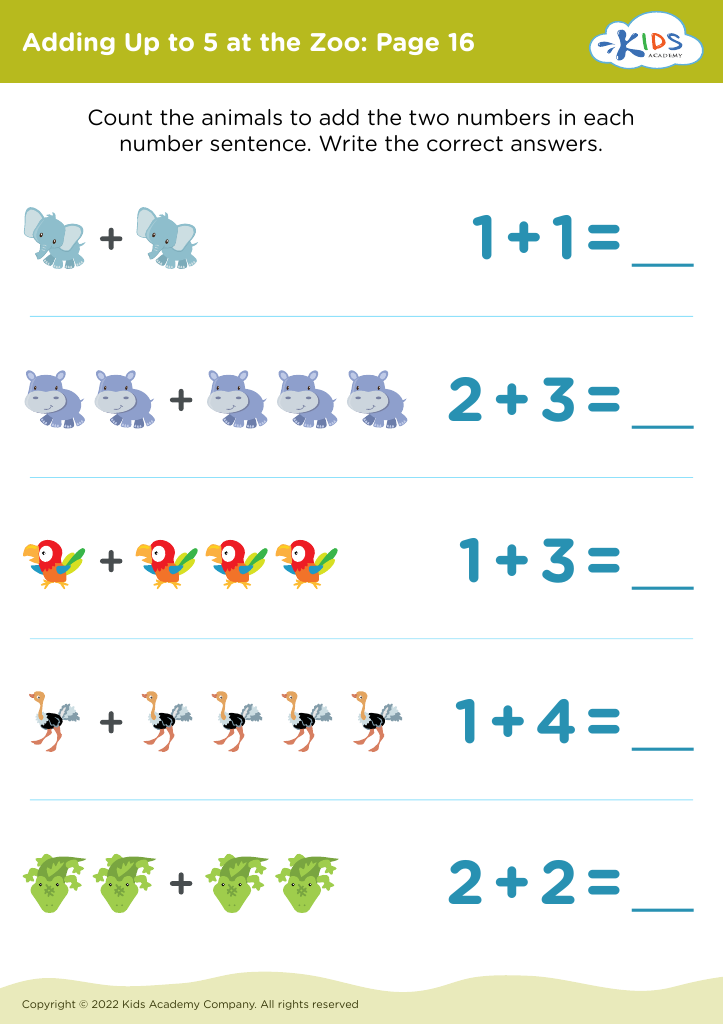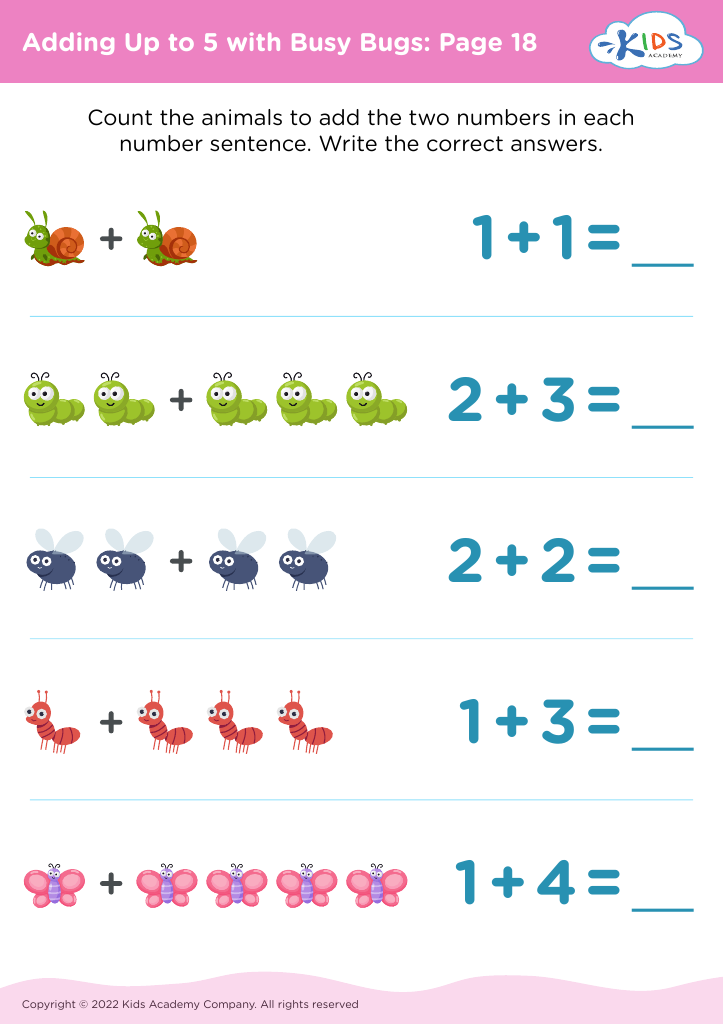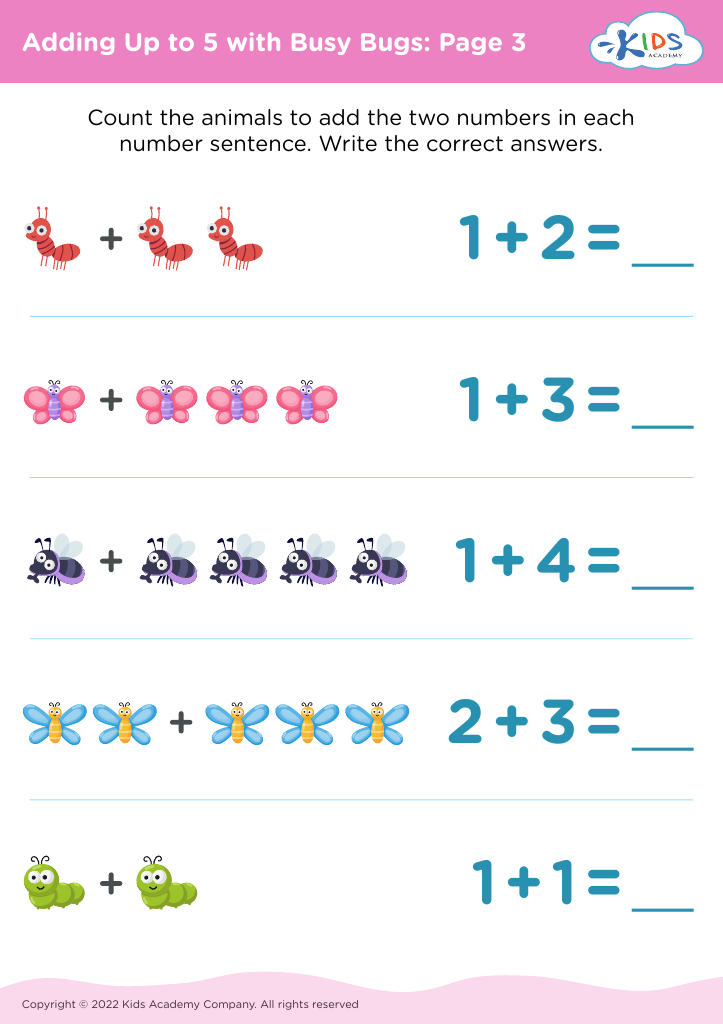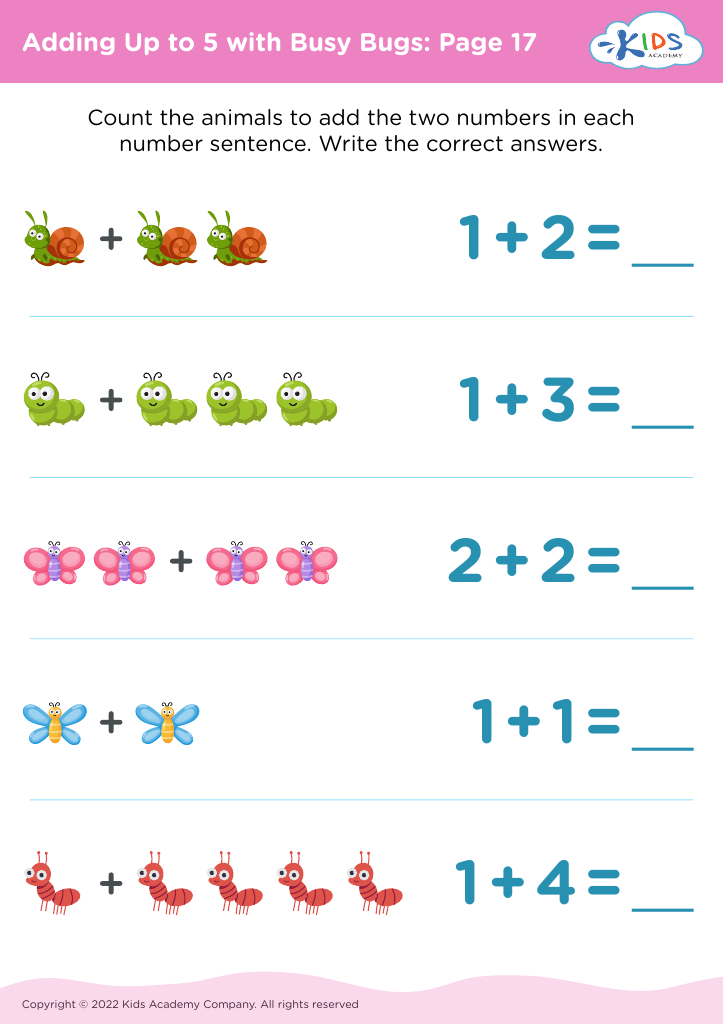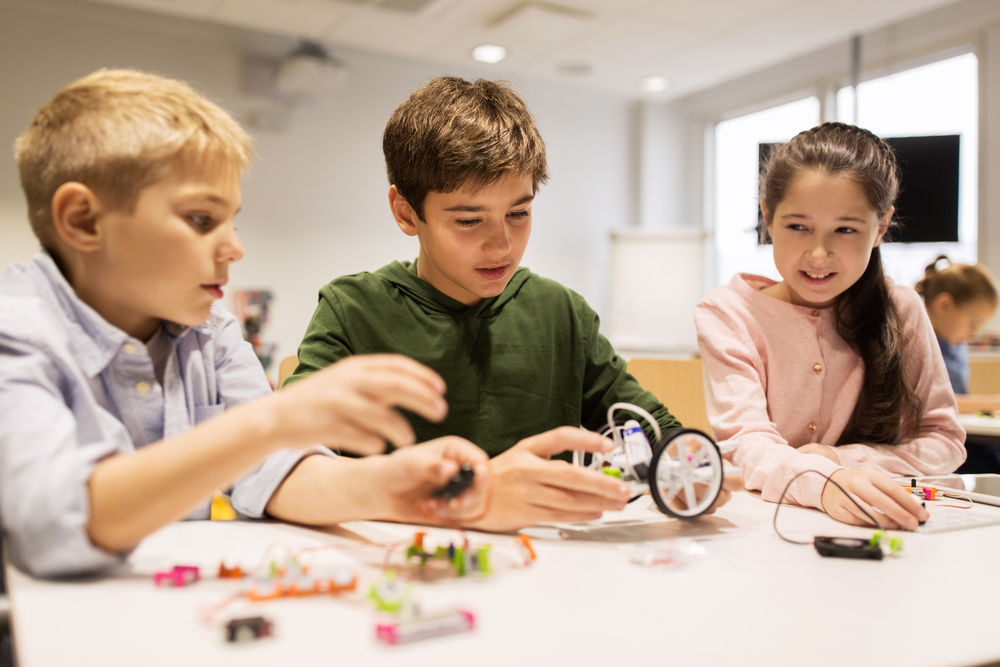Developing Concentration Math Worksheets for Ages 3-4
6 filtered results
-
From - To
Enhance your child's early learning abilities with our expertly crafted Developing Concentration Math Worksheets for ages 3-4. Designed by educational professionals, these engaging activities focus on building essential concentration skills through enjoyable math exercises. From sorting and pattern recognition to counting and shape identification, each worksheet captivates young minds while fostering attention to detail and sustained focus. Perfect for preschoolers, these printables not only support cognitive development but also lay a strong foundation for future academic success. Help your little one advance their concentration skills in a fun and interactive way with Kids Academy's high-quality math worksheets.
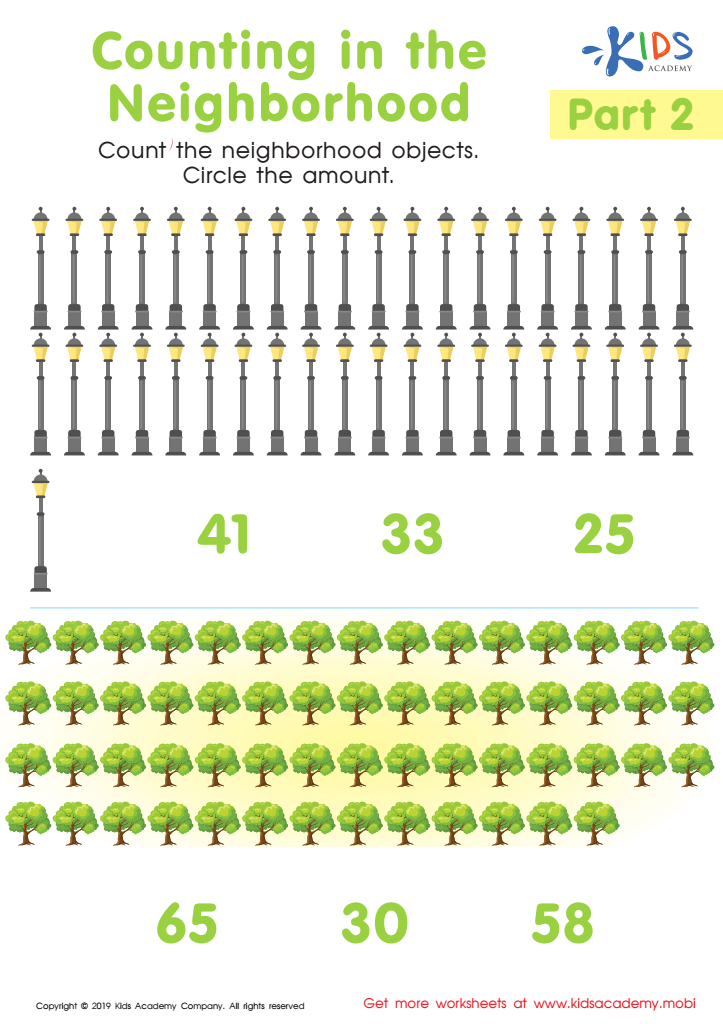

Counting In The Neighborhood Part 2 Worksheet
Developing concentration in math for children aged 3-4 is fundamental for their cognitive growth and future academic success. At this tender age, toddlers are exceptionally receptive to new information, and fostering their focus sets a positive foundation for lifelong learning. Concentration is a critical skill that bolsters their ability to engage with and understand basic mathematical concepts such as counting, shapes, and patterns.
Toddlers naturally explore the world through curiosity. When parents and teachers nurture concentration, they help children build the perseverance needed to tackle simple mathematical problems, making learning feel like a rewarding adventure rather than a chore. Early math skills are directly linked to problem-solving abilities; as children learn to make connections and recognize patterns, they're building cognitive pathways that support higher-level thinking.
Concentration also supports emotional development by instilling a sense of achievement and boosting self-confidence. These formative experiences in math can spark a lifelong interest in the subject, guiding children toward academic areas where robust mathematical skills are crucial.
Moreover, educators and parents play a significant role in this developmental phase. By creating a structured yet stimulating environment with engaging, hands-on activities, they can enhance a child's concentration span, contributing to a balanced, well-rounded intellectual foundation that fuels their curiosity and enthusiasm for learning.
 Assign to My Students
Assign to My Students
